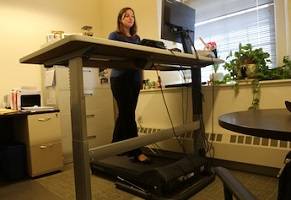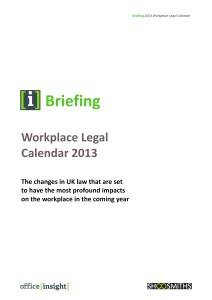April 29, 2013
Extensive new research launched into leadership in FM
A new research initiative, focusing on leadership has been launched by Workplace Law, the key findings of which will be presented at ThinkFM 2013, taking place on Monday 10 June at the Royal College of Physicians in London. The theme of the conference this year is ‘The Leadership Challenge: Raising our game, making our case, realising our value’, and Workplace Law’s survey aims to draw the opinions of facilities management clients and service providers across the UK. It covers a range of issues, including talent in FM, sustainability, leadership in health and safety, plus looking at how leadership and performance management in FM can really add value to an organisation. (more…)

































April 3, 2013
Ergonomic update: Are you taking the tablets?
by Sara Bean • Comment, Facilities management, Knowledge, Legal news, Technology, Workplace
(more…)